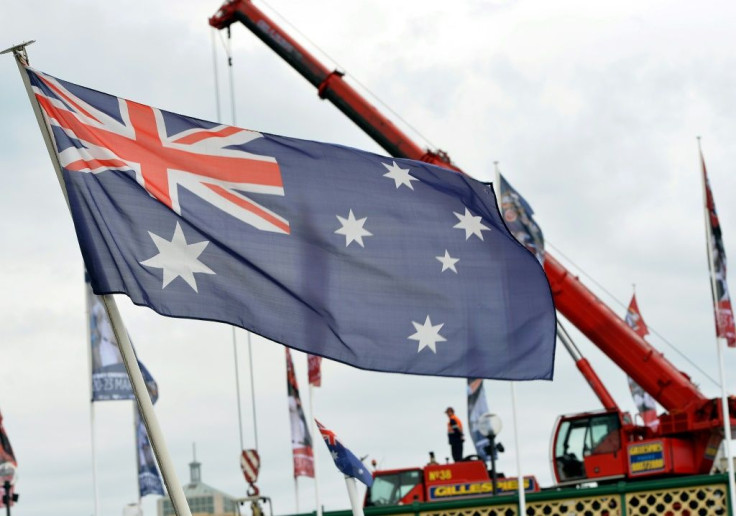South China Sea Tensions: Chinese Navy Confronts Australian Warships Near Disputed Islands

KEY POINTS
- Though the exact location of the confrontation is not known, it is believed to be near the contested Spratly Islands.
- China-Australia relationship has become strained in the week
- Australia irked Beijing recently by calling for an investigation into the origins of the coronavirus pandemic
Australia may be joining the list of countries that have faced a confrontation from China near disputed islands in the South China Sea. The disputes are usually between China and other Asian countries with the U.S. acting as the counterpower to China’s military might. Now, Australia may be entering the arena.
The confrontation occurred last week when an Australian Defense Force joint task group was traveling close to the contested islands on the way to join some military war games with the U.S. and Japan in the Philippine Sea, ABC reported.
Though the exact location of the confrontation is not known, it is believed to be near the contested Spratly Islands. The five warships, the HMAS Canberra, HMAS Hobart, HMAS Stuart, HMAS Arunta and HMAS Sirius reportedly had all remained outside 12 nautical miles of the islands.
This is unlike the practice of the U.S. that will venture closer when on “freedom of navigation” exercises meant to send a message from the U.S. Navy toward Beijing. A statement released to ABC from the Defense Department said all “unplanned interactions with foreign warships throughout the deployment were conducted in a safe and professional manner”.
A Defense Department spokesperson said that “Australia is committed to a secure, open, prosperous and resilient Indo-Pacific region. We routinely work with regional partners to address shared security challenges. Activities conducted during this routine deployment are part of the Australian Defense Force's regular military-to-military engagements throughout the Indo-Pacific, which are conducted each year.”
Relations between Australia and China reached its peak in 2007 – the year saw China become Australia’s biggest trading partner, particularly in mining exports. Aside from a small incident in 2008, described as a “blip”, trade between the two countries continued to grow, resulting in a free-trade agreement in 2015.
The relationship has become strained in the recent weeks. Australia irked Beijing recently by calling for an investigation into the origins of the coronavirus pandemic. It also criticized China’s new national security law in Hong Hong.
In a report on the South China Morning Post, Tom Switzer, the executive director of the Centre for Independent Studies, an Australian libertarian think tank founded in 1976, said, "It’s difficult to pinpoint a precise turning point in the deterioration in Sino-Australian relations, but I would say it was sometime in 2017."
Switzer added, “For the best part of two decades, from the mid-1990s to the mid-2010s, Australian governments of both labor and conservative persuasions reconciled relations with our most important trade partner, China, and our most important security ally, America. I have often argued that Canberra adeptly rode two horses simultaneously.”
There have been a few incidents between the Royal Australian Navy (RAN) vessels and the Chinese military in the South China Sea in recent years. One, in 2018, was what ABC called a “robust exchange” involving Australian warships on the way to Vietnam.
In 2017, Australian navy helicopter pilots were hit by lasers during exercises, forcing them to land as a precaution.
The 2020 global COVID-19 pandemic that put China in the crosshairs of international scrutiny, last week’s announcement by the U.S. calling China’s actions in the South China Sea as “completely unlawful”, plus the sense that Australia is beginning to favor the American “horse” could serve as an invitation for China to stage future confrontations in Asian-Pacific waters.
© Copyright IBTimes 2024. All rights reserved.





















